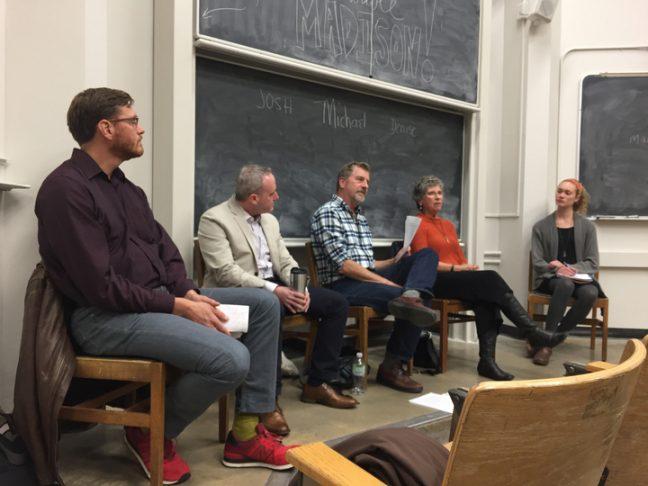A panel of experts convened Monday night to discuss Madison’s commitment to converting to 100 percent renewable energy and what that means for the city.
Program and Policy Director of RENEW Wisconsin Michael Vickerman said Madison’s decision to move toward renewable energy arose from a crisis. Nearly three years ago, Madison Gas and Electric enacted a flat rate for their energy prices instead of a usage charge. It was unsustainable for the city and costly to customers, he said.
“The city could no longer be a passive customer to a utility company,” Vickerman said. “It had to chart its own future.”
Alder Denise Demarb, District 16, emphasized the MG&E flat rate not only was detrimental to the environment, but also was a racial and social justice issue.
Madison has a sustainability plan that addressed aspects of environmental, social justice and fiscal issues, Demarb said.
Annually, the city uses nearly 768 megawatts of energy, Vickerman said. If solar panels were to be installed in Madison to offset that use, it would be approximately ten-square miles of solar panels, which would be about the size of Lake Mendota.
Helios, a student group at University of Wisconsin, is attempting to put solar panels on a majority of buildings on campus, Vickerman said. They are addressing another issue that we hope to look at in the future, which is the foundations of buildings.
“To what extent are the architects and engineers paying attention to the energy use of the building?” Vickerman said. “We need to rethink when we construct new buildings to make them more sustainable.”
Associate Professor of Public Affairs and Environmental Studies Gregory Nemet said while investing in renewable energy is expensive short-term, in the long run it will be much cheaper than continuing down a path of non-renewable energy.
Demarb added it is important to put pressure on the legislature to make these changes possible. Approximately $1 million of the state budget is allocated to sustainable efforts in Madison.
“Out of the whole budget, $1 million is a drop in the bucket,” Demarb said. “This needs to be a priority.”
To make change happen, Demarb said, it is up to citizens to voice their opinions and display their concerns to enact change.


